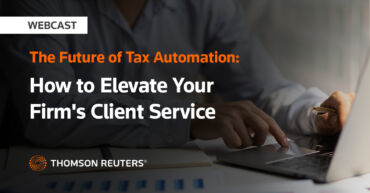Accounting has seen a lot of commoditization in the introduction of user-friendly tools over the past few years. However, businesses are finding that though they can do more in-house, more questions arise about their operations and financial performance.
These questions can be related to changes in regulatory and compliance standards, ESG, and general business advice. As a result of the explosion of new tools and software available, accounting firms have a significant opportunity to improve their reputational status through enhanced advisory service offerings.
The industry is already seeing a trend toward client service expanding beyond the scope of tax reporting to stakeholder reporting, tax optimization advice, and business performance analysis. Accountants are joining the c-suite at the table, which has resulted in a pivot for accounting firms from process-related services to trusted advisors. This additional value is not captured in hourly pricing. Value-based pricing is a much better proposition for the client, the accounting firm, and the bottom line on both sides
Incorporating new technology and advisory services into your firm
Demonstrating your firm’s ability to be innovative is an important way to differentiate your firm from competitors. Positioning your firm as one that embraces technology internally helps align your firm’s mission and values with those of your clients who are faced with embracing innovation and opens the doors to clients in emerging industries.
For all it can do, there are limitations to technology. Despite the availability of tools and software that have commoditized certain aspects of the process side of accounting, clients must still rely on the knowledge and wisdom of best practices, implementation, strategy, and execution that only real-world experience can provide. The role of task-based, data-focused, busy work is decreasing as it moves to application-based programming, but the need for advisory services is escalating quickly. Capturing the application of this knowledge, and charging for it, is a key focus of advisory services and value-based pricing.
Clients are turning to accountants as business advisors due to their intimate knowledge of the financial performance and regulatory compliance framework of their client’s industry. With the speed at which compliance and regulatory changes are happening, clients must be able to get the data they need to make operational adjustments and avoid potential fines. Changes to indirect taxes are raising questions and organizational challenges.
Accounting firms who are equipped with these tools and information will be in a position to help their clients respond to these changes. Clients will depend more on their accounting professionals as trusted advisors. While that is good for developing long-term relationships, it can pose some difficulties in defining the expectations and boundaries of that relationship.
What are the benefits of moving to value-based pricing?
There are several benefits to adopting value-based pricing as a key component of your advisory services. While transitioning to this model may involve some negotiation, it’s crucial to recognize the true value of the knowledge and expertise you provide, rather than simply pricing based on time.
To help illustrate why this mind shift is required, consider this example — if your firm saved a client $180,000 a year with some insight or experience shared over a 15-minute meeting, is it reasonable to charge the client a quarter of an hourly rate or a fee based on the value and results?
This next frontier of advisory-centric, value-based accounting practices is going to redefine client relationships and the way projects are executed. Where the real value of your firm’s services lie is shifting to advisory services that require year-round attention and technology to meet client expectations more and faster.
Switching to a value-based pricing model offers the ability to:
-
- Offer customized services in new and existing markets.
- Capture the real value of services.
- Differentiate services from competitors.
- Create more year-round recurring revenue.
- Encourage better client relations with a clear scope of work.
“[Practice Forward has] given me the freedom to be a better husband, a better father, a better business owner.…It’s a game changer. Completely changed me.“
– Robert Jones
President and Founder, RC Jones & Associates
What technology solutions should accountants have?
Transitioning to advisory-based services would not be possible without the power of technology to save time. Leveraging technology to automate repetitive tasks, providing instant updates to formulas where there have been changes to tax rates, and cloud communication are all tools the accountant-turned-advisor will want to ensure they have at their disposal to stay competitive and profitable.
-
- Cloud-based accounting platforms are useful for automated billing, invoice tracking, financial reporting, and integration with software like Thomson Reuters Checkpoint Edge® for user-friendly, up-to-date tax research and client communication.
- AI-enabled predictive analytics tools, such as those offered by IBM and SAP, are capable of processing and analyzing large amounts of financial data identifying trends and patterns that may be difficult to detect manually. These are powerful tools for both efficiency and providing deep insights that can drive value for informed financial decisions.
- Practice Management software, such as Thomson Reuters Practice Forward®, performs as an office manager with time tracking, billing, and project management functionality. It can help free up time for more strategic work.
Moving accounting forward
Before getting bogged down in negotiating hourly rates, take a deep look at stepping up to advisory services with value-based pricing. Stay competitive and profitable by incorporating new technology, such as Practice Forward, into your firm’s methodology to unlock time and resources, making room for more strategic work and client development.
Clients are already looking for advisory services; the demand is there. Developing value-based pricing is the best way to capitalize on your firm’s knowledge and technological investments, offering more to a wider range of clients while keeping a clearly defined scope of work.
Discover how to optimize your advisory services and pricing strategies with our resources below
White paperAdvisory services: Is your pricing strategy Fact or FUD? Is your firm taking advantage of all its opportunities to make money? |
|
Report QuizThomson Reuters Advisory Report Quiz
|
|












